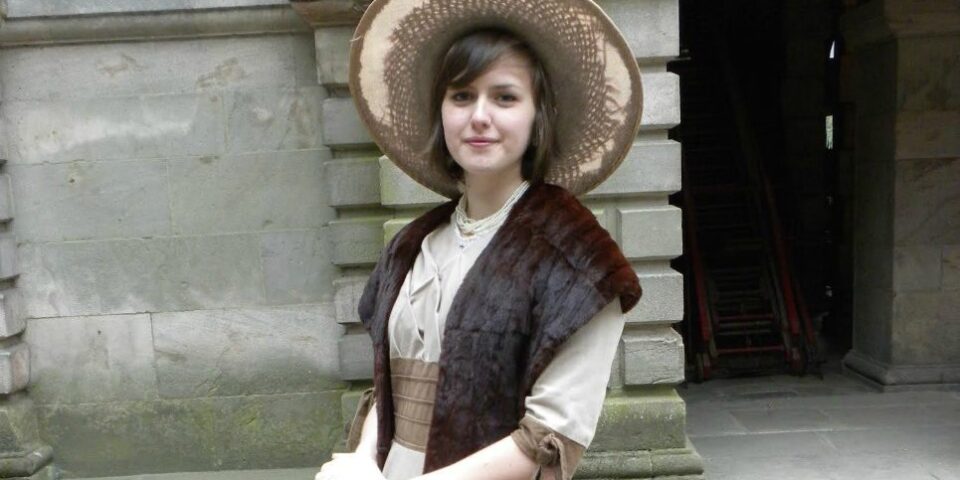Hi, I’m Emily. I remember how uncomfortable I felt introducing myself as a Mormon during my first year of college. I began my journey at Barnard just a week after being baptized a member of the Church of Jesus Christ of Latter-day Saints, and it was a major struggle to tell anyone about my religious affiliation. I attributed my discomfort to being new to the Church, to living in a new city, to adjusting to college. I blamed the way my parents had reacted to my baptism. I blamed anything I could to keep myself from confronting the things in my newfound faith that I could never fully support.
With my liberal upbringing, the word “Mormon” was never one with which I had wanted to be associated. My baptism separated me from family and friends. I held tightly to the promises the missionaries made me, that God would bless me for my faithfulness and things with my family would work out.
Meanwhile, something else separated me from everyone at church. While my fresh perspective was celebrated at first, the longer I stayed in the fold the more I felt pressured to conform. My faith at the time of my baptism was never in heterosexual marriage and rigid gender roles. It was in a budding relationship with a Father I had just met, in the joy I felt at hearing that there was a Heavenly Mother, too. It was in Christ’s love. It was new and wonderful and deeply personal.
Somehow along the way, and especially on my mission, my faith was no longer meant to be just in Christ, but in a whole lot of other things, too. I had to be obedient to the nth degree, to prove to myself and God (and to church leaders) that I was different from the world. A lot of times that meant throwing myself fully into supporting decisions made by male leaders with which I did not agree. I put my dissenting opinions on the altar of sacrifice with each passing day of devotion.
Until my mission, I had not been included in meetings in which men outnumbered women, or been in a position where I had to report to so many men. I was part of the mission leadership council for a time, and I remember being frustrated that I had seen no sisters give trainings, and that there were six sisters in the council compared to sixteen elders. I felt that the sisters didn’t have an equal voice. I raised my concern to those appointed to hear it — male mission leaders. It wasn’t taken seriously. Several months later, a visiting general authority sat in on our council meeting. When he closed our meeting with his remarks, his words were my thoughts. He said that the sisters needed more of a voice and that even the set up of the room disadvantaged them. (The sisters sat in the front row on couches, the elders behind them on chairs. The chairs were taller and put the elders closer to eye level with those speaking; the sisters were overlooked and outnumbered.) I thanked the man and his wife after the meeting, feeling better until I thought about how it took the direction of a man in authority over our mission president to change something that directly impacted me. My voice only mattered once it was validated by a man. What if he hadn’t visited? Or what if, like other authorities who had visited our meetings during my time in the mission, he had seen nothing wrong? Thus began my disillusionment. I tried not to feel the way I felt. I surrendered. The salvation of others seemed to hang in the balance.
I returned from my mission, at first feeling sure of myself and my place in God’s world. As my missionary blinders came off, I saw that many things were not as I thought they were. I slowly woke up to the fact that my feminism shouldn’t stop at my own church. Two parts of me crashed together. I could no longer hold up an institution that worked so hard against the things that mattered to me, an institution that made me feel voiceless. I believe women should be ordained.









